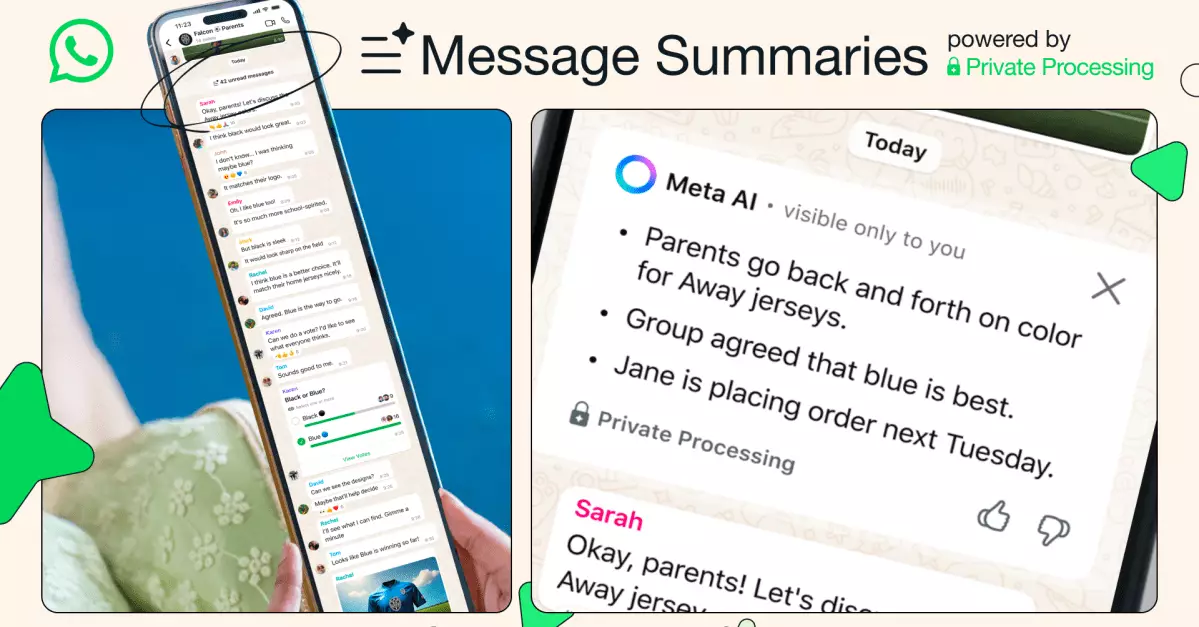In an era where digital communication is paramount, WhatsApp is stepping up its game with a groundbreaking feature powered by Meta’s AI technology. This enhancement allows users to catch up on missed messages through concise, bulleted summaries produced by the AI, rather than wading through a sea of unread texts. This fusion of artificial intelligence with everyday messaging promises to improve user experience, especially for those constantly inundated by chats and notifications, enhancing efficiency in the way we communicate.
The Technology Behind the Convenience
Using a system called Meta’s Private Processing technology, this feature attempts to offer a safeguard against privacy breaches. By generating summaries within a secure cloud environment, Meta ensures that neither the company nor any third party can snoop on users’ personal conversations. Such privacy guarantees are crucial in an age where digital privacy concerns dominate consumer conversations, especially after various social media platforms have faced scrutiny over their data handling practices. Additionally, this technology aligns closely with WhatsApp’s commitment to user privacy, a core tenet that has attracted millions of users globally.
The Optionality and Privacy Questions
While Meta promotes the AI summaries as an optional feature—activated only by user choice—there is palpable concern. Many users might feel pressured to utilize AI functionalities, especially if they perceive them as integral to staying in the loop with friends and family. However, WhatsApp has offered a robust “Advanced Privacy” setting, which allows users to opt out of AI features in group chats. This proactive move is commendable and could alleviate user apprehensions about AI invading their personal space. Nevertheless, established concerns about the accuracy of AI-generated content persist; users recall the inaccuracies associated with Apple’s similar features, which could undermine trust in Meta’s implementations.
User Reactions and Ongoing Adaptations
Despite Meta’s intentions to enhance the user experience, the response has been mixed. The introduction of the AI summary button in the app’s interface has received backlash, as some users have expressed frustration over the inability to disable or customize this feature. This evolution reflects a broader trend in tech where innovations can sometimes lead to user alienation rather than engagement. Furthermore, the controversy stemming from ad placements within WhatsApp, previously a no-go zone espoused by its founders, has compounded dissatisfaction among loyal users. As Meta continues to refine its approach, listener feedback must play a critical role in shaping future iterations of these AI tools.
The Road Ahead for WhatsApp and Its Users
What lies ahead for WhatsApp in this AI-infused landscape remains to be seen. As the feature rolls out across various languages and regions, ongoing user feedback will catalyze adjustments and improvements. Ultimately, the balance between pioneering technology and user-centric design will dictate WhatsApp’s trajectory. If executed mindfully, this AI feature could represent a significant leap forward, revolutionizing how we engage in personal and group communications, making the challenging act of staying connected simpler and more intuitive, provided that privacy and user control remain top priorities.

